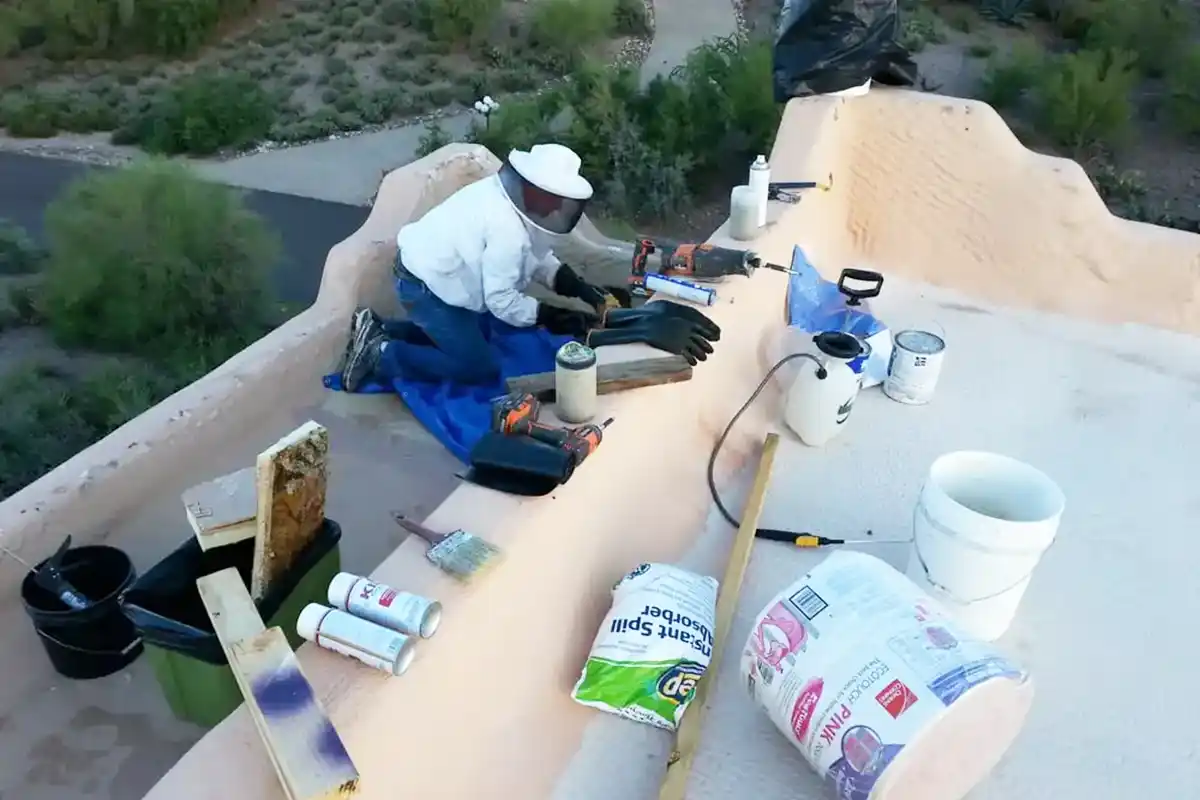
What Not to Do When Bee-Proofing Your Home
As we’ve explained in previous articles of our blog, honey bees play a crucial role in our ecosystem, pollinating plants and supporting biodiversity. That said, when bees nest too close to where we and our families live and play, it can lead to some serious concerns.
As such, the desire to bee-proof a home often springs from wanting to ensure safety for family members and to prevent potential damage to property. However, certain missteps can do more harm than good. Here’s a list of what not to do, when attempting to bee-proof your home.
Ignoring Beehive Signs
One of the biggest mistakes is neglecting to observe signs of bee activity before taking action. If bees are not present, there’s no need to bee-proof your home aggressively. Ignoring this can lead to unnecessary extermination efforts or costly repairs. Instead, take the time to understand if you truly have an infestation or if you’re simply being cautious without cause.
Using Harmful Chemicals
Many homeowners look for quick fixes when they see bees or suspect a hive nearby. Resorting to chemical pesticides or insecticides can be detrimental not only to bees but also to the surrounding environment, beneficial insects, and even family pets. Instead, seek out natural alternatives or professional bee removal services that focus on relocation rather than extermination.
Sealing Off Entry Points Without Inspection
When sealing potential entry points, homeowners must first inspect the areas thoroughly. Rushing this process can lead to mistakes, such as missing hidden openings or misidentifying the type of bee. Seal cracks and gaps after a comprehensive evaluation to ensure there are no nests you might trap inside.
Neglecting Landscaping Maintenance
Bees are attracted to gardens filled with pollen-rich flowers. Neglecting to manage your landscape can also attract more bees to your home. Avoid planting new flowering plants close to your house without considering their proximity. Instead, create distance between your home and bee-attracting plants, or choose bee-repelling flora.
Using Poor Quality Materials for Sealing
When sealing cracks or holes, using cheap or ineffective materials can backfire. Bees can easily chew through flimsy materials like flimsy plastic or tape. For effective bee-proofing, invest in high-quality materials such as steel mesh or caulk specifically designed for outdoor use.
Ignoring Professional Help
Some people believe they can manage bee-proofing on their own of fear of costs or hassle. This mindset often leads to subpar results. If you’re uncertain about how to deal with bees or have a significant problem, don’t hesitate to call in professionals. They can assess the situation and provide safe solutions tailored to your specific needs.
Downplaying the Importance of Knowledge
Having a clear understanding of bees, their behavior, and their importance is vital to making informed decisions. Some individuals rush to judgment without proper research. For instance, mistaking bees for wasps can lead to misguided and ineffective bee-proofing measures. Take the time to educate yourself on identifying different types of stinging insects and their roles.
Failing to Monitor Regularly
Once you have taken steps to bee-proof your home, don’t consider the job done. A lapse in monitoring could result in new infestations or the emergence of hidden hives. Regular inspections are crucial, especially before and during peak bee activity seasons.
Overreacting to Bee Presence
Seeing one bee shouldn’t incite panic. Many species of bees are solitary and harmless unless provoked. An overreaction can lead to stress and poor decisions, such as hurriedly sealing up areas of your home that aren’t necessary or dropping harmful poisons. It’s important to stay calm and evaluate what’s going on before responding with any type of action.
Bee-proofing your home can be a successful endeavor with the right approach and knowledge. Avoiding these common pitfalls will ensure a safer, more effective process that respects the ecological role of bees while protecting your home. If you find yourself facing persistent problems with bees, remember that expert solutions can often be the most effective and environmentally friendly route to take.